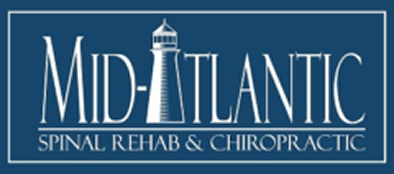Cervicogenic Headaches and Neck Pain
Patients with headaches also commonly complain of neck pain. This relationship is the rule, not the exception. Therefore, treatment for headaches must include treatment of the neck to achieve optimum results. The term, “cervicogenic headaches” has been an accepted term because of the intimate connection between the neck and head for many years. There are many anatomical reasons why neck problems result in headaches. Some of these include:
• The first 3 nerves exiting the spine in the upper neck go directly into the head. They penetrate the muscles at the top of the neck near the attachments to the skull and therefore, any excess pressure on these nerves by the muscles or spinal joints will result in irritation and subsequent pain.
• The origin or nucleus of the 5th cranial nerve called the Trigeminal, innervates the sensation to the face and is located in the upper cervical region near the origin of the 2nd cervical spinal nerve, which innervates sensation to the back of the head up to the top. Therefore, problems located in the upper neck will often result in pain radiating up from the base of the skull/upper neck over the top of the skull to the eyes and /or face.
• The 11th cranial nerve that innervates the upper shoulders and muscles in the front of the neck arises from the top 5 to 7 spinal cord levels in the neck. Injury anywhere in the neck can result in spasm and pain in these large muscle groups.
• Other interconnections between the 2nd cervical nerve and trigeminal/5th cranial nerve include communication with the 7th cranial / facial nerve, the 9th cranial / glossopharyngeal nerve, and the 10th cranial / vagus nerve. These connections can affect facial muscle strength/movements, taste, tongue and throat movements, and stomach complaints such as nausea from these three cranial nerve interconnections, respectively.
When patients seek treatment for their headaches, a thorough examination of the neck, upper back, and cranial nerves is routinely performed for the above reasons. It is common to find upper cervical movement and vertebral alignment problems present in patients complaining of headaches. Tender points located between the shoulder blades, along the upper shoulders, on the sides of the neck and particularly, at the base of the skull are commonly found. Pain often radiates from the tender point over the top of the skull when pressure is applied in the upper neck/base of the skull area. Tenderness on the sides of the head, in the temples, over the eyes, and near the jaw joint are also common. Traction or pulling the head to stretch the neck is often quite pain relieving and this is often performed as part of the chiropractic visit and can also be applied at home with the use of a home cervical traction unit. Chiropractic adjustments applied to the fixated vertebra in the upper neck often brings very satisfying relief to the headache sufferer. Exercises that promote movement in the neck, as well as strengthening exercises are also helpful in both reducing headache pain and in preventing occurrences, especially with stress or tension headaches.
As a Chiropractor that routinely treats patients with headaches and neck pain as a result of auto accidents in Baltimore, I see patients with headaches and neck pain every day. If you, or someone you know, can use the help of a Baltimore Chiropractor for headaches and neck pain, please contact Mid-Atlantic Spinal Rehab & Chiropractic at (443) 842-5500. We would be happy to help!
The above information was reproduced with permission from Dr. Ben Altadonna and “The Practice Building Alliance”.
